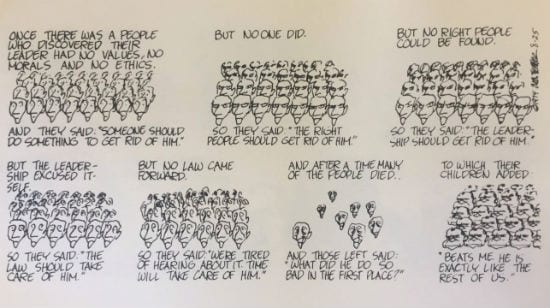Today's news from Hispaniola is horrifying:
U.S. and Canadian troops on Thursday rushed to a town left completely submerged by flooding, and health officials feared 1,000 people could be dead in that town alone, a figure that would nearly double the toll from storms that hit Haiti and the Dominican Republic.
About 300 bodies have been counted so far in the isolated border town of Mapou, said Dr. Yvon Lavissiere, the health director for the region.
That brought the confirmed death toll from Haiti and the Dominican Republic to nearly 870. …
In the Haitian border town of Fond Verrettes, meanwhile, more troops handed out food Thursday to hundreds of survivors who lined up seeking help. Troops were also ferrying plastic tarpaulins to families seeking shelter.
Rains over the weekend lashed the island of Hispaniola, which Haiti shares with the Dominican Republic, sweeping away entire neighborhoods early Monday.
Including the 300 known dead so far in Mapou, some 450 bodies have been recovered in Haiti. At least 158 more people in Fond Verrettes were missing and presumed dead.
At least 417 bodies had been recovered in the Dominican Republic, and officials said some 400 were missing.
"The river took everything, there isn't anything left," said Jermanie Vulsont, a mother who said the rushing water swept away her five children in Fond Verrettes, about 35 miles southeast of Port-au-Prince.
Rushing waters and mudslides swept away most homes in Fond Verrettes, leaving it looking like a barren riverbed with stunned residents wondering about and asking troops for help.
For these people, among the poorest in the Western hemisphere, life was already hard and it just got worse.
The town of Mapou shares its name with a kind of Haitian tree. Most of Haiti's third of the island it shares with the Dominican Republic is mountainous. Once covered with trees, this steep, hilly country is now mostly deforested — thanks in part to the industrious but short-sighted cottage industry of producing charcoal, which has been one of the few ways many Haitians have been able to make a living. Treeless hillsides plus tropical rains equals mudslides and devastation, as the Associated Press reports:
The death tolls have been high because the border area is largely deforested and many of the poor have built poorly constructed homes out of wood and tin. Hundreds of homes were destroyed on both sides of the border.
It's more than just the border area — as much as 90 percent of Haiti is now this kind of moonscape environment.
At one level, the situation in Haiti — the ecological devastation, intractable poverty and political turmoil — seems overwhelming. But from another perspective, it's really very simple.
One of my favorite books is Jean Giono's brief parable The Man Who Planted Trees. The plot, protagonist and theme of the book are all contained in that title.
Haiti needs trees, the old man at the center of that book would recognize. So he would plant some.
Floresta is a group that's doing just that. It's a Christian mission group that plants trees — or, as they put it, Floresta "reverses deforestation and poverty in the world, by transforming the lives of the rural poor." So far, they've planted more than 2 million trees in Haiti, the Dominican Republic and Mexico.
Haiti needs a lot more than just trees, of course. It's economy is sub-subsistence and it remains in political chaos. But without trees, any other measures are doomed to fail. The planting of trees may not be sufficient to solve all of the island nation's problems, but it is an essential and necessary step.
Floresta recognizes this. Their outlook, and their work, isn't as simple as that of Giono's glorious monomaniac. They do a bit more than just plant trees. But they do plant trees.
And Haiti needs trees.
(Floresta accepts donations here.)












